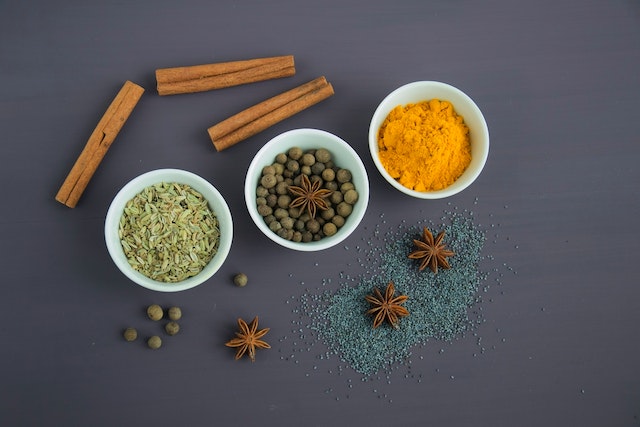Turmeric, also known as Curcuma longa, is a spice that has been used for centuries in traditional medicine due to its anti-inflammatory properties. This golden-yellow spice, native to Southeast Asia and a member of the ginger family, has gained popularity in the West in recent years as a natural anti-inflammatory supplement. In this article, we will explore the benefits of turmeric as a natural anti-inflammatory and how to incorporate it into your daily routine.
The Perplexing Nature of Turmeric
Turmeric is a plant that belongs to the ginger family. The root of the turmeric plant is dried and ground into a fine powder, which is used as a spice in cooking. The active ingredient in turmeric is called curcumin, which is responsible for its perplexing anti-inflammatory and antioxidant properties.
Turmeric as an Anti-Inflammatory
Inflammation is the body’s natural response to injury, infection, or irritation. Chronic inflammation can lead to health issues such as heart disease, cancer, and autoimmune disorders. Turmeric’s anti-inflammatory properties come from its ability to inhibit the production of inflammatory molecules in the body, such as cytokines and prostaglandins. Curcumin also boosts the activity of the body’s own antioxidant enzymes, reducing oxidative stress and inflammation.
Turmeric has various health benefits, such as:
-
Reduces Inflammation and Joint Pain:
Turmeric has been found effective in reducing inflammation and pain associated with osteoarthritis and rheumatoid arthritis. A study in 2014 found that curcumin was as effective as ibuprofen in reducing joint pain and swelling.
-
Improves Brain Function:
Curcumin has been found to increase levels of brain-derived neurotrophic factor (BDNF), a protein that promotes the growth and survival of neurons. This can lead to improved brain function and a reduced risk of age-related brain diseases such as Alzheimer’s.
-
Lowers the Risk of Heart Disease:
Curcumin has been shown to improve endothelial function, which is important for regulating blood pressure and preventing blood clots. It also reduces inflammation and oxidative stress, major contributors to heart disease.
-
May Help Prevent Cancer:
Studies have shown that curcumin can help prevent the growth and spread of cancer cells. It has been found to be effective against several types of cancer, including breast, colon, and prostate cancer.
-
Boosts Immune System:
Curcumin has been shown to boost the activity of the body’s own immune cells, helping to fight off infections and diseases.
How to Incorporate Turmeric into Your Diet
Turmeric can be incorporated into your diet in various ways, such as:
- Add turmeric to soups, stews, and curries for a warm, earthy flavor.
- Mix turmeric into scrambled eggs or tofu for a savory breakfast.
- Use turmeric to season roasted vegetables, such as cauliflower or sweet potato.
- Make a turmeric latte by adding turmeric, cinnamon, and honey to your favorite milk.
How Much Turmeric Should You Take?
The amount of turmeric you should take depends on the intended use. For general health benefits, a daily dose of 500-2000 mg of curcumin is recommended. However, it’s important to note that turmeric supplements may interact with certain medications, so it’s best to consult with your doctor before taking them.
Conclusion
Turmeric is a natural anti-inflammatory with numerous health benefits. Its active ingredient, curcumin, has been shown
to reduce inflammation, improve brain function, lower the risk of heart disease, help prevent cancer, and boost the immune system. By incorporating turmeric into your diet, you can reap these benefits and enjoy its warm, earthy flavor. However, it’s important to consult with your doctor before taking turmeric supplements, as they may interact with certain medications.
FAQs
Is it plausible to consume turmeric on a daily basis?
Turmeric, in moderate quantities, is generally regarded as safe for daily consumption. Nevertheless, it is highly recommended to seek advice from your physician before taking turmeric supplements, since they could interact unfavorably with particular medications.
Could turmeric have any beneficial impact on weight loss?
Although there is some suggestion that curcumin, a compound found in turmeric, may promote weight loss, additional investigation is warranted to validate these outcomes.
Can turmeric be applied topically?
Yes, turmeric may be applied topically to alleviate inflammation and enhance skin health. However, it has the potential to blemish the skin and clothes, so use it with prudence.
Are there any potential side effects from consuming turmeric?
Although turmeric is typically safe for consumption, certain individuals may experience side effects such as nausea, diarrhea, and vertigo. Furthermore, it has the potential to interact with particular medications, so it is recommended to speak with your doctor prior to using turmeric supplements.
Can turmeric be used to treat depression?
Although some indications suggest that curcumin may be effective in treating depression, more scientific inquiry is required to confirm these findings. It is crucial to consult with your doctor prior to using turmeric as a treatment for depression.
